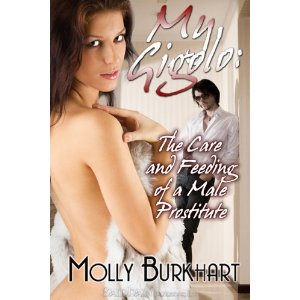I got bogged down in a few details this morning so I was afraid I wouldn’t get my words. I wanted a couple of variations of Kukulkan — all the names he’s been known as across the various Mesoamerican peoples. Then I needed Tecun’s real name — and I couldn’t find it. I knew I’d seen it somewhere, but it wasn’t in my notes. I finally remembered that it was at the end of the Popol Vuh (and since I have a copy with tons of post-it notes sticking out of it, I didn’t bother writing it down). Tecun Uman K’iqab, Black Butterfly Grandson of K’iqab, who was one of the rulers of the K’iche.
The scene I was working on was trying to introduce him — and I had to get it right.
Of course I had to look up how to spell some words too. Quetzalcoatl I got right, but not Teotihuacan. (I truly feel sorry for whoever gets to voice these names if the story is a). accepted and b). ever goes to Audible.) And yes, I know that in a real Fast Draft I shouldn’t have bothered spelling them correctly — that’s what Revision Xibalba is for. However, I want this draft to be as solid and readable as possible and misspellings of major things drives me nuts. Of course some of these details might get edited out in revisions too. I don’t want it to read like a history book.
Anyway, despite my hang ups this morning, I still made good progress, bringing my total wordage to 2,865. As always when I start a hard round of true Dark & Early — and drink too much coffee — I get an upset stomach. So only one cup this morning, along with toast. I’m also ravenous (because I’ve been up since BEFORE the butt crack of dawn) which makes my diet challenging. So I’m having smaller meals more often. I’m really craving scones, so I might try to make some healthy ones tonight. That’ll be my treat D&E tomorrow morning.
I’ll continue a bit from yesterday’s first line, but remember this is only first draft. I’m not sure that I’ve nailed the voice yet (which is CRUCIAL in first person). Openings usually go through several iterations before I get it right — but I’m pretty sure that first line has to stay. 🙂
I heard a quetzal calling outside my window again last night.
A few months ago—before I nearly drowned—I’d never even heard of the strange bird. Now it seemed to roost outside my window every damned night.
Glaring up at the invisible watcher hidden in the tree limbs, I muttered beneath my breath. “I thought queztals were extinct.”
“Some say they are, because the bird we know today surely isn’t the magnificent bird of legend,” our guide said in an agreeable voice. I don’t think anything would rattle Jose’s calm, leathery exterior. At least my constant American questions hadn’t upset him. “We still revere them.”
“I think that one has a red breast.” Natalie peered up into the shadowed growth like Sherlock Holmes. My best friend was determined to prove all this mumbo-jumbo shit was all in my head. I couldn’t fault her for trying. In fact, I wished she could. I didn’t want some strange holy bird howling outside my window every night. Let alone the other dreams.
Despite the sauna-like air filling my lungs and frizzing my hair, I shivered.
“Oh, very lucky, then,” Jose replied. “Let me tell you our legend of how the quetzal came to bear its red breast.
“Many say that when the great Tecun Uman went to fight the demon conquistador Pedro de Alvarado not far from here, that his quetzal nahual, or spirit guide, went with him. Some say Tecun even transformed into the mighty bird during the battle, his massive wings buffeting the Spaniards and shielding his people from their terrible weapons.”
Jose paused his tale as we reached the end of a long avenue of overgrown trees. Ahead, a sprawling house stretched across the countryside, beautiful despite the jungle trying to overtake it. Perched on the knees of a verdant volcano, the house commanded an incredible view of Lake Atitlan below.
Cradled between three massive volcanoes, Lake Atitlan claimed to be the most beautiful—and possibly the deepest—lake in the world. I couldn’t bear to look at it.
Water closing over my head. Cold. So cold. Blood on the water.
Shuddering at the memory, I shielded my eyes and scanned the house again. Rows of coffee fields curved up the side of the volcano. So green. I’d never known such an incredible, lush green before coming to Guatemala. Birds sang in the trees, not the annoying call of the quetzal that kept me up all night. With the huge bushes and trees trying to swallow the house, I could almost picture what Eden had been like. Lush, riotous growth everywhere I looked.
“Are you sure this is it?” I asked our guide.
“I checked the papers this morning. The house is still deeded to Carla Gonzales.”
My grandmother, Nana, who’d set my feet on this adventure.
No, I whispered to myself. Drowning started this little nightmare.

